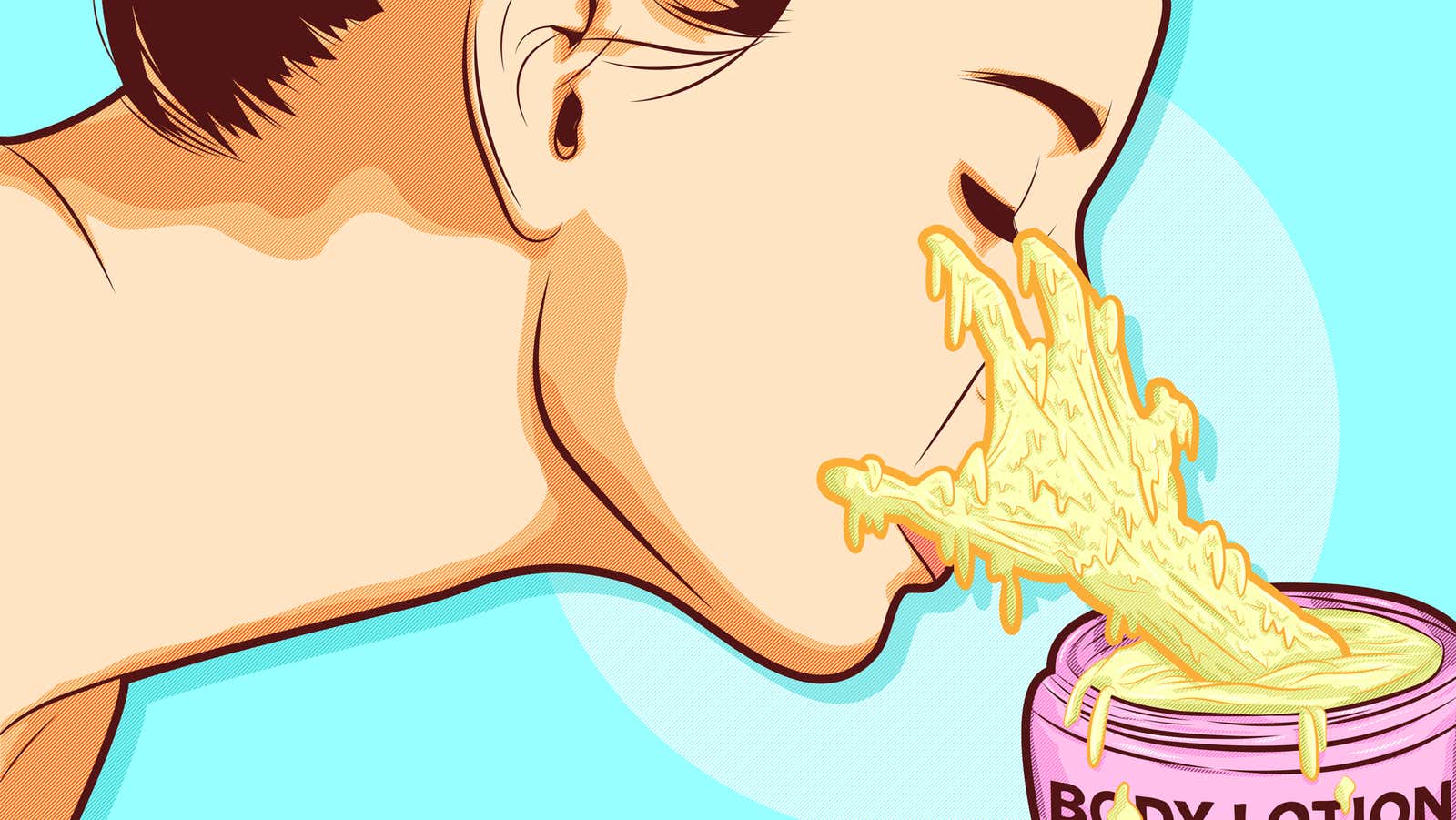Can Body Lotion Be Used to Moisturize My Face?

My college roommate and I had two very different approaches to skin care. She applied the body lotion to her face like the lotion left over from her hands and feet, straight from the pump bottle. Meanwhile, I moisturized my face with special moisturizers for the face . I thought she was doing more harm than good, but her method was not as harmful as I thought.
You can’t blame me. As you walk down the aisle of the cosmetic store, you will find moisturizers with clear caveats about where and how they should be used: some say you should only apply them to your body, face, arms, and even legs. But skin is skin, isn’t it? No, the skin on the hands is very different from the skin on the face.
The skin on your face is not the same as on your body
The skin on different parts of the body varies greatly . Your face tends to have thinner skin, more sebaceous glands, and more hair follicles than other parts of your body, such as thicker skin on your legs. Even areas on your face , such as around your eyes, are thinner than others. All of this simply means that your facial skin may be more sensitive, and for some people, it will look shinier and more prone to breakouts.
Most companies would think that body lotion should never be used on the face, but this is not really the end of the world. Dr. Cynthia Bailey , a board-certified dermatologist from California, told me:
[Lotion] is fine. The marketing difference is if it’s a mild moisturizer. If it contains irritating ingredients, it may be too strong for facial skin, which has fewer barriers than body skin.
The key point here is that the ingredients matter more than the so-called “type” of lotion.
Body lotion is fine if it doesn’t irritate your face.
Many body lotions are highly scented and contain a wide range of irritating ingredients such as isopropyl palmitate , isopropyl myristate , cocoa butter , pigments, and dyes. These ingredients can cause problems for acne-prone skin. “Soft” moisturizing creams , such as the CeraVe , Cetaphil and Vanicream , typically do not contain fragrances and minimize stimuli. If you regularly experience breakouts, there may be too much body lotion and you should try something milder.
The viscosity of your moisturizer also matters. There are creams, lotions, gels, and oils, and they all feel different when you apply them. What you use depends on your skin type, how dry it is, and the climate or season you are in. Creams are thickest because they contain a lot of oil. They are great for dry skin because the dense texture helps to retain moisture, especially in winter or dry climates. However, if you have oily and acne-prone skin, you might be better off using a light, oil-free moisturizer . Lotions and gels, on the other hand, are lighter, less greasy, and better suited for summer. In particular, gels refresh and leave no greasy residue.
People with normal (not too oily, not too dry) skin can do without body lotions to moisturize the body and face as long as they don’t irritate their face and properly retain moisture in their skin. It ultimately comes down to your skin type. Check out our complete guide on which moisturizers are best for which skin type to find out more.
It turns out that my roommate understood something. She used body lotion because it helped her and that’s important. If you use body lotion on your face, it’s not crazy if your skin looks and (more importantly) feels great.
This story was originally published on 9/23/16 and updated on 8/28/19 to provide more complete and up-to-date information.